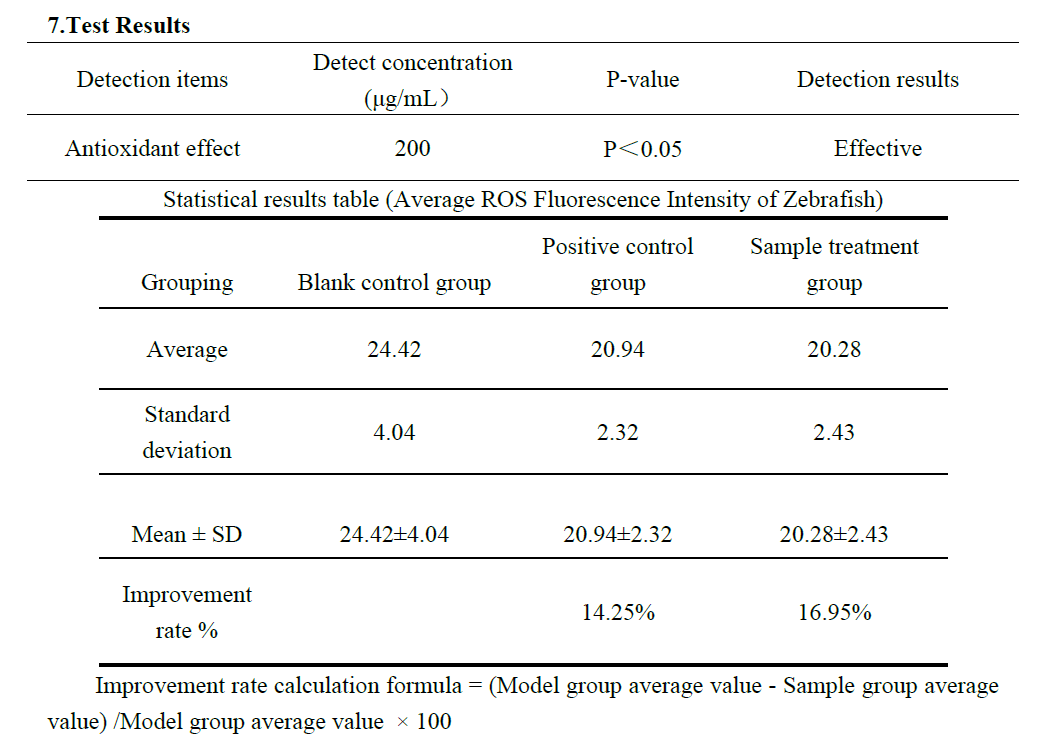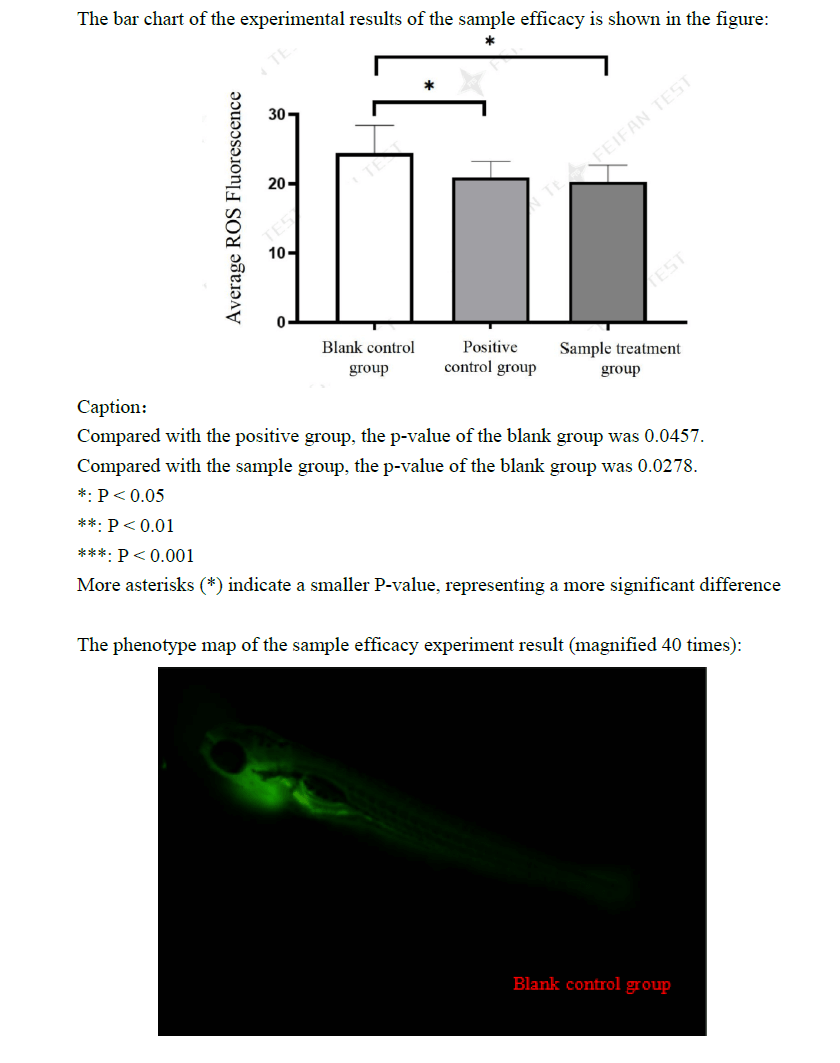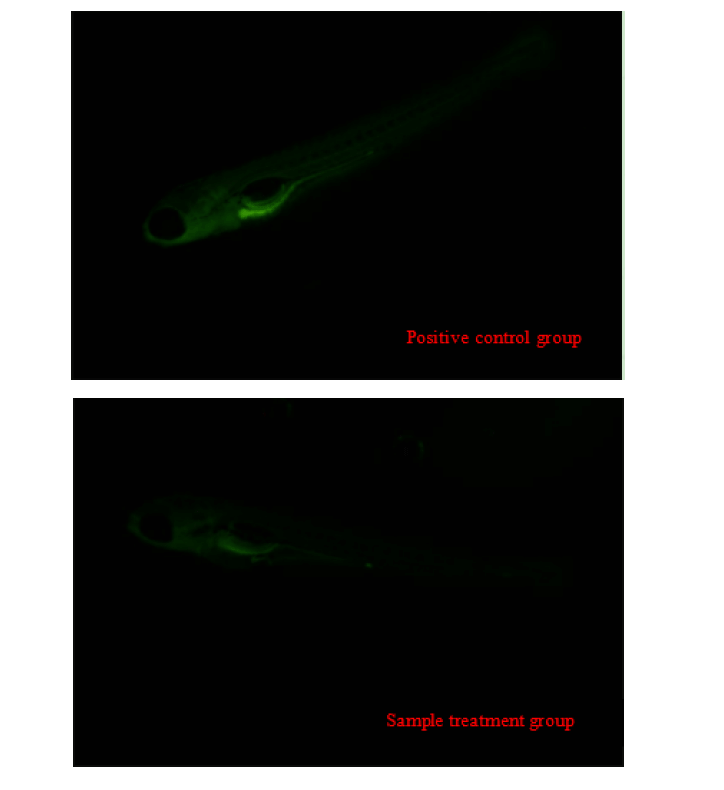Our Study - ProFisetin® Zebrafish Antioxidant Clinical Trial
1. Trial Overview
This trial was commissioned by SHANGHAI AIDU BIOTECHNOLOGY CO.,LTD. Its core goal was to verify the antioxidant capacity of ProFisetin® through zebrafish experiments, with a focus on detecting changes in Reactive Oxygen Species (ROS) levels—key indicators of oxidative stress and aging.
Trial Period: Sampling Date (2025-08-26) | Testing Period (2025-08-26 ~ 2025-09-16)
Test Standard: In-lab detection method for "Zebrafish Antioxidant Project - ROS Detection", with reference to national standards: GB/T 39649-2020 Quality of Experimental Fish for Experimental Animals (for zebrafish rearing environment and feed) and GB/T 13267-1991 Acute Toxicity Test of Water Quality Substances on Freshwater Fish (Zebrafish) (for safe concentration determination)
2. Trial Design & Methodology
Experimental Principle: Oxidative stress is one of the important factors leading to aging. During normal physiological metabolism, some substances with oxidative activity, such as reactive oxygen species (ROS), are produced. When the production of ROS in the body exceeds the body's scavenging capacity, oxidative stress is triggered.After treatment with the test substance, the reduction of ROS level in zebrafish can directly reflect the antioxidant capacity of the test substance.
Determination of the Safe Test Concentration(MTC):Zebrafish were treated with Fisetin at 200 μg/mL, 500 μg/mL, and 1000 μg/mL.
Efficacy Evaluation: Zebrafish in each group were cultured with corresponding treatments, stained with ROS probes, and observed/photographed under a fluorescence microscope to quantify ROS fluorescence intensity.
3. Core Trial Results
The Safe Test Concentration:Results confirmed 200 μg/mL as the maximum safe concentration (no significant toxicity vs. blank group).
Antioxidant Performance: Through the zebrafish experiment, ProFisetin® exhibited antioxidant effects under the experimental conditions. Compared with the blank group, the ROS fluorescence intensity decreased by 16.95%.
ProFisetin®'s ability to mitigate ROS-induced oxidative damage highlights its potential as a bioactive compound for health applications.


